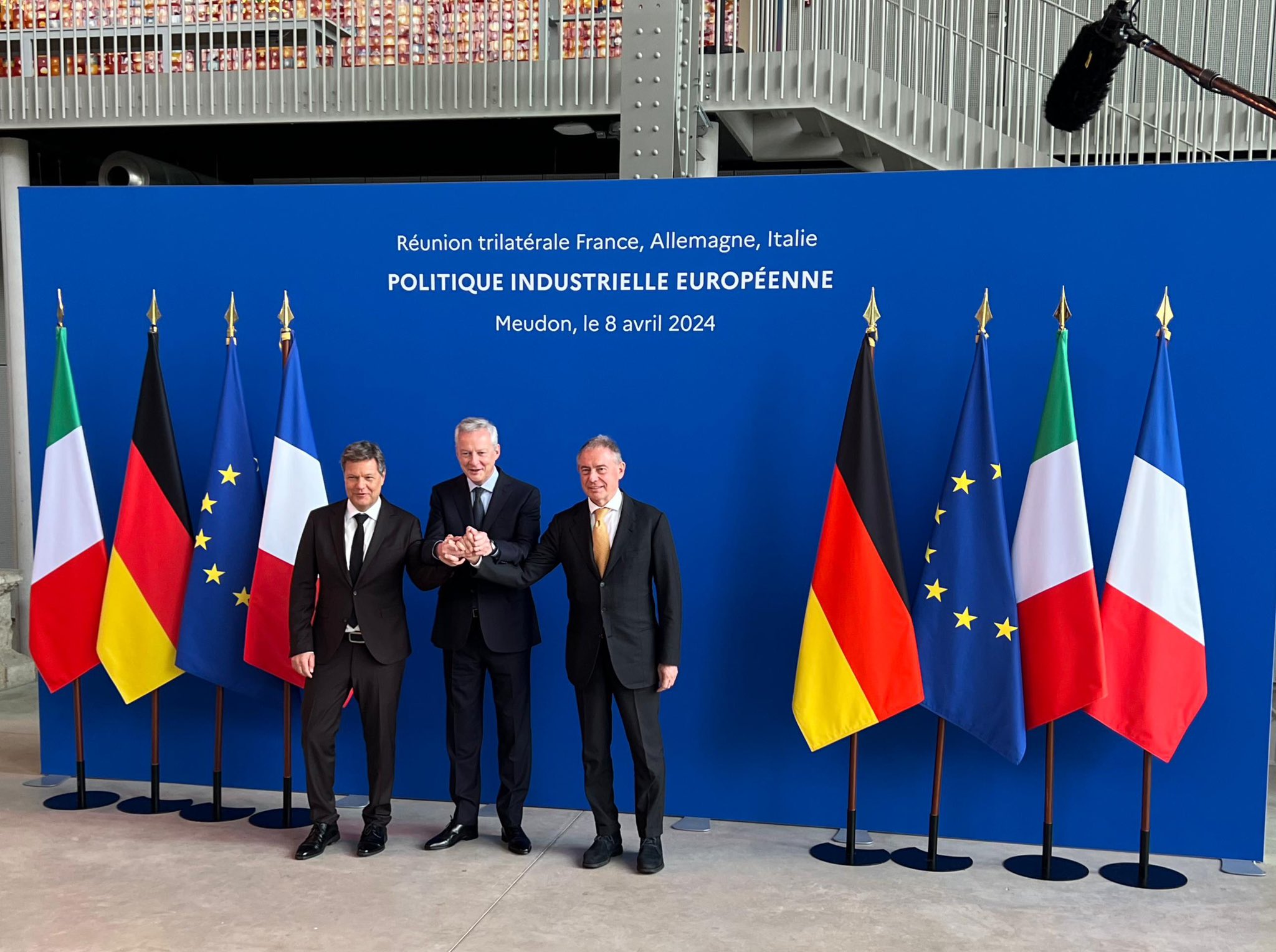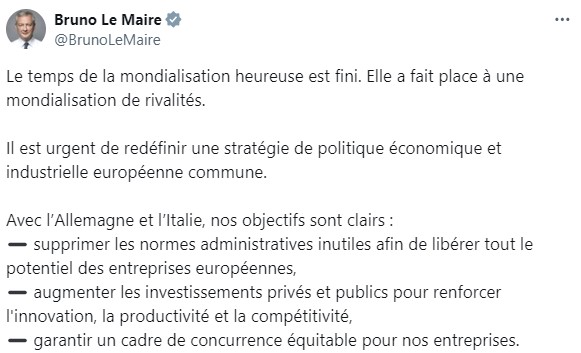Italy, France and Germany reject the European carbon duty

At the Meudon summit between ministers Urso, Le Maire and Habeck on the relaunch of industry, the three countries invited Brussels to review the Cbam, the carbon duty that could disadvantage European companies. All the details
After the one in Berlin on raw materials, last June, and the one in Rome on artificial intelligence, in October , the summit on Monday 8 April in Meudon between the ministers of Italy, France and Germany – the three main economies of the European Union – focused on the more general relaunch of European industry in strategic sectors for the ecological and digital transitions.
Present were the Italian Business Minister Adolfo Urso, the French Economy Minister Bruno Le Maire and the German Economy Minister Robert Habeck, plus four companies representing each country: for Italy Enel (energy), Danieli (plants steelworks), Pirelli (tyres) and Alpitronic (power electronics).
THE FRENCH PROPOSAL FOR THE EUROPEAN QUOTA IN PUBLIC NOTICES
Of the three ministers, the one with the most radical positions for the recovery of European production compared to Chinese and US competition seemed to be the Frenchman Le Maire, who proposed for example a minimum share of European content – between 40 and 60 percent – in public procurement. Urso said he was in favor of a measure of this type, highlighting the risk that Europe will transform into a continent of consumers of goods made elsewhere; However, no agreement was reached on the matter, probably due to German caution.

Italy, France and Germany also discussed regulatory simplification and harmonization of policies, for example those on common purchases of raw materials.
THE PROBLEM WITH THE DUTY ON EMISSIONS
In the joint statement, which returns several times to the concept of European sovereignty over critical energy and digital technologies, mention is also made of the CBAM , the Carbon Border Adjustment Mechanism. It is, essentially, a duty on extra-European imports of highly carbon-intensive goods (steel, aluminium, cement, fertilisers…), which will come into force definitively in 2026: the provisional version is active from October 2023 This duty will offset the difference between the CO2 emissions of the imported goods and the price of carbon on the European market (the so-called Emissions Trading System, or ETS).
In short, the CBAM aims to guarantee equal conditions between European companies and those based in countries that have not adopted equally rigorous climate policies, "equalizing" the production costs of the most energy-intensive goods; at the same time, it wants to prevent the relocation of European industry to territories where the rules on emissions are looser. In jargon, we refer to delocalization motivated by climate regulations with the term carbon leakage .
In the final document of the Meudon summit, Italy, France and Germany declare that “before extending the CBAM to indirect emissions, [it is necessary] to ensure that the decarbonisation trajectory and the competitiveness of energy-intensive industries, particularly exposed to international trade, are not hindered and that the CBAM can fully prevent carbon leakage ."
CBAM FRIGHTENS THE EUROPEAN INDUSTRY
Instead of reassuring them about foreign competition, as intended, the CBAM is scaring several European manufacturing companies – in particular those in the steel sector – who fear that due to the mechanism they will end up paying more for imported raw materials, losing their competitiveness . It would also be damaging for Italy and its numerous exporting companies.
One of the problems of the CBAM is that if the carbon duty will only apply to raw materials and intermediate products, but not to finished ones, then European manufacturing companies will be disadvantaged compared to companies – also European – which will import goods directly from abroad. finished. As Paolo Sangoi of Assofermet wrote in Rivista Energia , "those who, for example, produce household appliances in the European Union using steel and aluminum imported from non-EU territories will find themselves facing a structurally higher cost than those who import the finished household appliance directly" .
Furthermore, it is still too early to say whether the CBAM will succeed in its aim of stimulating, by exploiting the relevance of the European market, the global standardization of emissions measurement methods. On the contrary, there is a risk of greater fragmentation of international trade.
CERRETELLI'S COMMENT
Adriana Cerretelli, a columnist for Il Sole 24 Ore who is an expert in industrial issues, commented on the Meudon summit as follows:
This Trilateral is more ritual than substance. It couldn't be otherwise: disruptive technologies, all of them, require colossal investments and in Europe, between slow growth and the Stability Pact, there isn't much money on hand, other Eurobonds are taboo for now, private capital is languishing. Internal tensions don't help.
This is a machine translation from Italian language of a post published on Start Magazine at the URL https://www.startmag.it/economia/cbam-vertice-italia-francia-germania/ on Tue, 09 Apr 2024 08:20:33 +0000.
